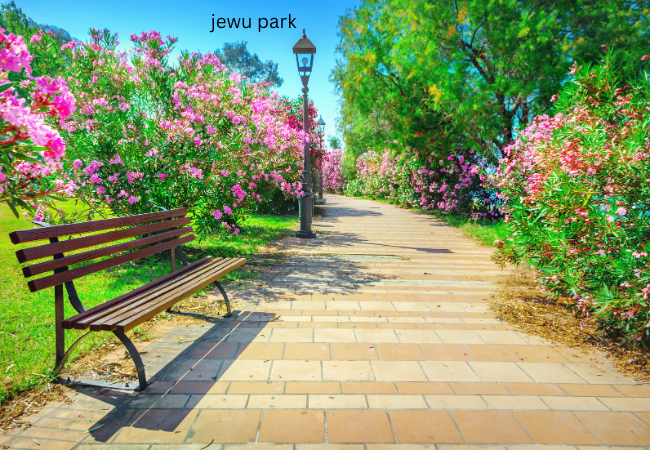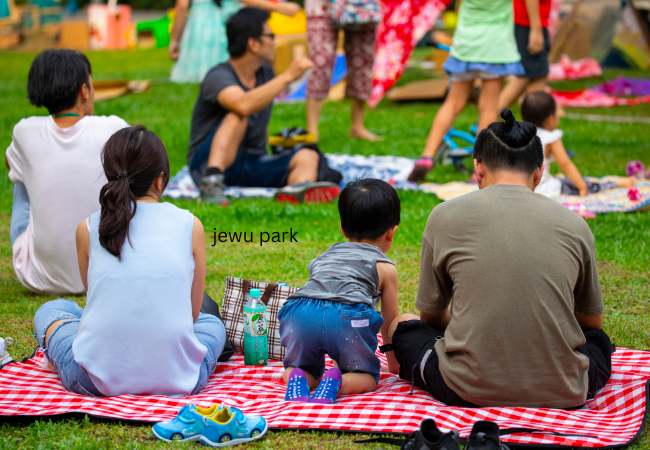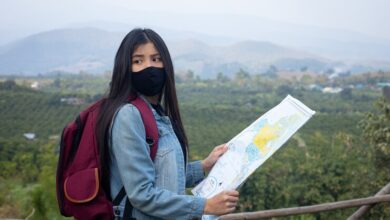jewu park Overview : Yours giude

Jeju Park is located on Jeju Island, the largest island off the coast of the Korean Peninsula. This volcanic island is situated in the Korea Strait, southwest of South Jeolla Province. Jeju Park spans a significant portion of the island, encompassing various natural and cultural sites.
History
Jeju Island has a rich history that dates back to ancient times. The island was formed from volcanic activity around two million years ago. Jeju Park, with its unique geological features and cultural heritage, has been recognized for its historical significance and natural beauty.
UNESCO Heritage Site
In 2007, Jeju Volcanic Island and Lava Tubes were designated as a UNESCO World Heritage Site. This recognition highlights the global importance of Jeju’s natural wonders, including Hallasan Mountain, Seongsan Ilchulbong Peak, and the intricate lava tube system.
Geographical Features
Volcanic Landscapes
Jeju Park is renowned for its volcanic landscapes, which include craters, lava tubes, and volcanic cones. The island’s volcanic origin is evident in its rugged terrain and unique geological formations.
Hallasan Mountain
At the heart of Jeju Park is Hallasan Mountain, the highest peak in South Korea, standing at 1,947 meters. Hallasan is a dormant volcano and a central feature of the park, offering diverse hiking trails and panoramic views.
Beaches
Jeju Park boasts some of the most beautiful beaches in South Korea. From the white sands of Hyeopjae Beach to the black volcanic sands of Jungmun Beach, visitors can enjoy a variety of coastal landscapes and activities.
Flora and Fauna
Endemic Species
Jeju Park is home to several endemic species, making it a biodiversity hotspot. Unique plants like the Jeju Camellia and Jeju Silver Grass, along with animals such as the Jeju Black Cattle and the Jeju Horse, thrive in this protected environment.
Unique Ecosystems
The park’s diverse ecosystems range from subtropical forests to alpine meadows. The variation in altitude and climate zones creates habitats for a wide range of plant and animal species.
Main Attractions
Seongsan Ilchulbong
Seongsan Ilchulbong, or Sunrise Peak, is a tuff cone formed by hydrovolcanic eruptions. This iconic landmark is famous for its breathtaking sunrise views and unique topography.
Manjanggul Cave
Manjanggul Cave is one of the finest lava tubes in the world, stretching over 13 kilometers. The cave features stunning lava formations, such as lava stalactites and stalagmites, making it a must-visit site for geology enthusiasts.
Cheonjiyeon Waterfall
Cheonjiyeon Waterfall, meaning “sky connected with land,” is a picturesque waterfall surrounded by lush vegetation. The area is also a habitat for various rare plant species, adding to its ecological value.
Cultural Heritage
Folklore Villages
Jeju Park includes several folklore villages where visitors can experience traditional Jeju culture. These villages showcase traditional houses, customs, and crafts, offering a glimpse into the island’s past.
Museums
The park features numerous museums, such as the Jeju Folklore and Natural History Museum, which provides insights into the island’s cultural and natural history.
Traditional Festivals
Jeju Park hosts a variety of traditional festivals throughout the year. Events like the Jeju Fire Festival and the Tamna Cultural Festival celebrate the island’s heritage with vibrant performances and activities.
Outdoor Activities
Hiking
Jeju Park offers extensive hiking opportunities, with trails ranging from easy walks to challenging mountain climbs. The Hallasan trail is particularly popular for its scenic views and diverse flora and fauna.
Cycling
Cycling is a great way to explore Jeju Park. The park’s well-maintained bike paths and scenic routes cater to cyclists of all skill levels, providing an eco-friendly way to experience the island.
Water Sports
The beaches of Jeju Park are perfect for water sports such as snorkeling, scuba diving, and surfing. The clear waters and abundant marine life make for exciting underwater adventures.
Accommodation Options
Luxury Resorts
Jeju Park boasts several luxury resorts that offer world-class amenities and stunning views. These resorts provide a perfect blend of comfort and natural beauty.
Budget Stays
For budget-conscious travelers, Jeju Park offers a range of affordable accommodations, including guesthouses and hostels. These options provide a comfortable stay without breaking the bank.
Camping
Camping in Jeju Park allows visitors to immerse themselves in nature. The park has designated camping areas equipped with facilities, making it easy to enjoy a night under the stars.
Dining in Jeju Park
Local Cuisine
Jeju Park is famous for its unique local cuisine, which features fresh seafood, black pork, and a variety of traditional dishes. The island’s culinary delights are a highlight for many visitors.
Popular Restaurants
There are numerous popular restaurants within Jeju Park that serve a wide range of dishes, from traditional Korean meals to international cuisine. These dining spots offer something for every palate.
Food Markets
Exploring food markets is a great way to sample local flavors. Markets like Dongmun Market and Seogwipo Maeil Olle Market offer fresh produce, seafood, and street food, providing an authentic taste of Jeju.
Transportation
Getting to Jeju
Reaching Jeju Island is convenient with regular flights from major Korean cities and international destinations. Ferries also connect Jeju with the mainland, offering a scenic journey across the Korea Strait.
Getting Around the Park
Transportation within Jeju Park is efficient, with options like rental cars, buses, and taxis. The park’s well-developed infrastructure ensures easy access to its various attractions.
Visitor Information
Best Time to Visit
The best time to visit Jeju Park is during the spring (April to June) and fall (September to November) when the weather is mild and the landscapes are at their most beautiful.
Entrance Fees
Entrance fees vary depending on the attraction. Many of the natural sites are free to visit, while certain areas like museums and guided tours may have a fee.
Guided Tours
Guided tours are available for visitors who prefer a structured experience. These tours provide detailed insights into the park’s history, geology, and cultural heritage.
Sustainable Tourism
Conservation Efforts
Jeju Park is committed to conservation and sustainable tourism. Efforts include protecting endangered species, maintaining natural habitats, and promoting eco-friendly practices among visitors.
Eco-friendly Practices
Visitors are encouraged to follow eco-friendly practices, such as minimizing waste, using reusable items, and respecting wildlife. These practices help preserve the park’s natural beauty for future generations.
Photography Spots
Best Views
Jeju Park offers numerous spots with stunning views, perfect for photography. Locations like Seongsan Ilchulbong and Hallasan Mountain provide breathtaking backdrops.
Sunrise/Sunset Locations
The island is renowned for its beautiful sunrises and sunsets. Seongsan Ilchulbong is a popular spot for sunrise, while beaches like Jungmun are ideal for capturing the sunset.
Tips for Photographers
Photographers should be prepared for diverse lighting conditions and bring equipment like tripods and wide-angle lenses to capture the full beauty of Jeju Park.
Travel Itineraries
One-day Itinerary
A one-day itinerary might include visiting Seongsan Ilchulbong for sunrise, exploring Manjanggul Cave, and ending the day at Cheonjiyeon Waterfall.
Weekend Getaway
A weekend itinerary could involve hiking Hallasan Mountain, visiting folklore villages, and enjoying water sports at one of the beaches.
Extended Stay
For an extended stay, visitors can delve deeper into the park’s attractions, participate in festivals, and explore nearby islands like Udo.
Shopping in Jeju Park
Souvenirs
Jeju Park offers a variety of souvenirs, from traditional crafts to unique local products like Jeju lava rock sculptures and orange chocolates.
Local Markets
Local markets provide a vibrant shopping experience. Visitors can find fresh produce, handmade crafts, and local delicacies, perfect for gifts and keepsakes.
Artisanal Crafts
Artisanal crafts, such as pottery and textiles, are widely available. These handmade items reflect the island’s cultural heritage and make for meaningful souvenirs.
Health and Safety
Medical Facilities
Jeju Park is equipped with medical facilities to ensure visitors’ health and safety. Hospitals and clinics are accessible, and emergency services are available.
Safety Tips
Visitors should follow safety guidelines, such as staying on marked trails, being aware of weather conditions, and respecting wildlife to ensure a safe visit.
Emergency Contacts
It’s important to have emergency contacts handy, including local authorities and medical services, for any unforeseen situations.
Weather and Climate
Seasonal Overview
Jeju Park experiences a temperate climate with four distinct seasons. Spring and fall are the most pleasant, while summer can be hot and humid, and winter cold and dry.
What to Pack
Packing appropriately for the weather is crucial. Lightweight clothing for summer, warm layers for winter, and comfortable hiking gear for outdoor activities are recommended.
Events and Festivals
Annual Events
Annual events like the Jeju Fire Festival and the Jeju Olle Walking Festival attract numerous visitors. These events celebrate local culture and natural beauty.
Cultural Celebrations
Cultural celebrations, such as traditional music and dance performances, provide an immersive experience of Jeju’s rich heritage.
Special Occasions
Special occasions like harvest festivals and New Year celebrations offer unique opportunities to participate in local traditions.
Nearby Attractions
Udo Island
Udo Island, a short ferry ride from Jeju, offers stunning landscapes, unique culture, and activities like snorkeling and cycling.
Jeju Folk Village
Jeju Folk Village is a living museum showcasing traditional Jeju architecture, customs, and lifestyle, providing a deep dive into the island’s history.
Hallim Park
Hallim Park features botanical gardens, lava caves, and a bird park, making it a great destination for nature lovers.
Wildlife Tours
Bird Watching
Jeju Park is a haven for bird watchers, with numerous species inhabiting its diverse ecosystems. Guided bird watching tours are available for enthusiasts.
Marine Life Excursions
Marine life excursions, such as boat tours and snorkeling trips, offer opportunities to see dolphins, whales, and a variety of fish species in their natural habitat.
Historical Sites
Dolmens
Dolmens, ancient megalithic tombs, are scattered across Jeju Park. These historical structures offer insights into the island’s prehistoric era.
Ancient Tombs
Ancient tombs, including those from the Tamna Kingdom period, provide a glimpse into Jeju’s rich history and archaeological significance.
Historic Monuments
Historic monuments, such as stone statues and fortresses, are key attractions in Jeju Park, reflecting the island’s cultural and historical heritage.
Adventure Sports
Paragliding
Paragliding over Jeju Park offers a thrilling way to see the island’s landscapes from above. Several operators provide tandem flights for beginners.
Scuba Diving
Scuba diving in the clear waters around Jeju reveals vibrant coral reefs and diverse marine life. Diving schools offer courses for all skill levels.
Rock Climbing
Rock climbing enthusiasts can explore Jeju’s volcanic cliffs and rock formations. The park offers routes for both novice and experienced climbers.
Family-friendly Activities
Theme Parks
Jeju Park features several theme parks, such as Jeju Shinhwa World and Eco Land, which offer fun activities for families with children.
Educational Centers
Educational centers within the park provide interactive exhibits and programs on Jeju’s natural and cultural heritage, making learning fun for kids.
Nature Trails
Nature trails designed for families allow for easy hikes through scenic landscapes, offering educational opportunities about local flora and fauna.
Nightlife in Jeju Park
Night Markets
Night markets in Jeju Park are bustling with activity, offering a variety of street food, local products, and entertainment.
Bars
Jeju Park has a range of bars and pubs where visitors can relax and enjoy local drinks, including the famous Jeju soju.
Cultural Performances
Evening cultural performances, such as traditional music and dance shows, provide an enriching nightlife experience in Jeju Park.

Travel Tips
Local Etiquette
Understanding local etiquette, such as greeting customs and dining manners, can enhance your experience and help you respect local culture.
Language Basics
Learning a few basic Korean phrases can be helpful, although many locals in tourist areas speak some English.
Money Matters
Most places in Jeju Park accept credit cards, but it’s wise to carry some cash for small purchases and in rural areas.
Eco-friendly Accommodations
Green Hotels
Jeju Park offers green hotels that follow sustainable practices, such as using renewable energy and minimizing waste.
Sustainable Resorts
Sustainable resorts in the park focus on eco-friendly tourism, providing environmentally responsible lodging options.
Eco-lodges
Eco-lodges offer a unique experience, often located in remote areas of the park, allowing guests to stay close to nature while minimizing their environmental impact.
Jeju Park for Solo Travelers
Safety
Jeju Park is generally safe for solo travelers, with low crime rates and friendly locals. However, it’s always important to stay vigilant and follow safety guidelines.
Recommended Activities
Solo travelers can enjoy a variety of activities, from hiking and cycling to joining guided tours that offer opportunities to meet other travelers.
Meeting Other Travelers
Hostels and guesthouses are great places to meet fellow travelers. Joining group tours and participating in park activities can also facilitate social interactions.
Jeju Park for Couples
Romantic Spots
Jeju Park is perfect for couples seeking romantic spots. Secluded beaches, scenic viewpoints, and cozy cafes provide ideal settings for romantic moments.
Honeymoon Packages
Many resorts in Jeju Park offer honeymoon packages that include romantic dinners, spa treatments, and private tours.
Couples’ Activities
Couples can enjoy activities like tandem cycling, sunset cruises, and private hiking tours, creating unforgettable memories together.
Jeju Park for Families
Kid-friendly Attractions
Jeju Park offers numerous kid-friendly attractions, such as theme parks, interactive museums, and safe beaches for family fun.
Family-friendly Services
Many hotels and restaurants in the park provide family-friendly services, including babysitting, children’s menus, and play areas.
Tips for Traveling with Kids
When traveling with kids, it’s important to plan activities that cater to their interests and ensure a comfortable and safe environment throughout the trip.
Jeju Park for Seniors
Accessibility
Jeju Park is accessible for seniors, with many attractions offering easy access and facilities designed for comfort and convenience.
Senior Discounts
Various attractions and transportation services in Jeju Park offer discounts for seniors, making it a budget-friendly destination for older travelers.
Leisure Activities
Leisure activities like gentle hikes, garden visits, and cultural performances provide enjoyable and relaxing experiences for senior visitors.
FAQs about Jeju Park
Common Questions, Travel Tips, Must-see Attractions
Conclusion
Jeju Park is a natural and cultural treasure, offering a diverse array of attractions and activities for all types of travelers. From its stunning volcanic landscapes and lush forests to its rich cultural heritage and vibrant festivals, Jeju Park promises an unforgettable experience.


